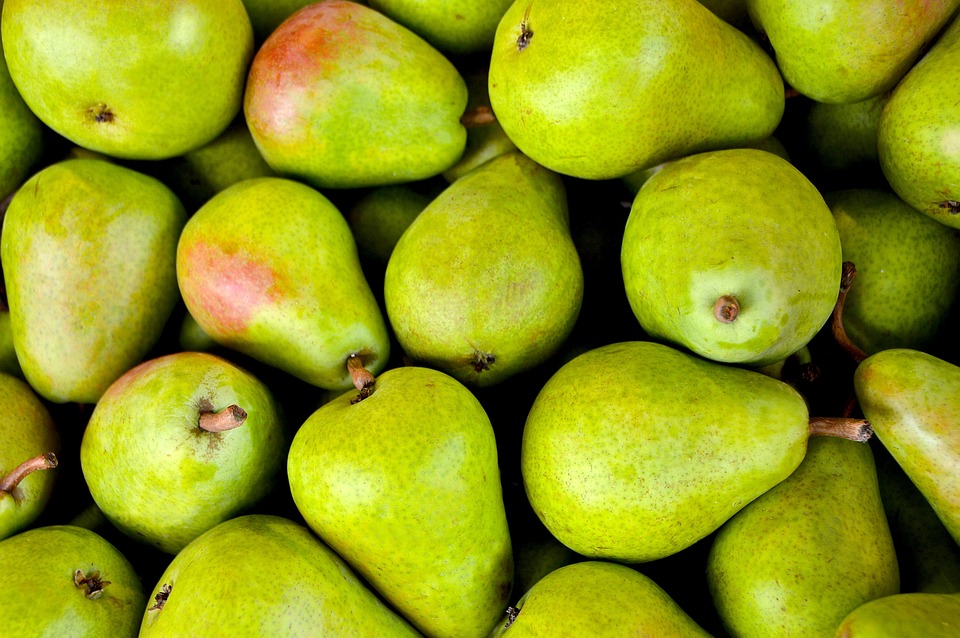Introduction to VSG Surgery Diet
VSG surgery, also known as vertical sleeve gastrectomy, is a weight loss surgery that involves the removal of a large portion of the stomach, resulting in a smaller pouch-like stomach. This surgery helps individuals with obesity to lose weight by restricting the amount of food they can consume. However, it is important to note that VSG surgery is not a quick fix and requires a commitment to dietary changes and lifestyle modifications. In this article, we will explore the VSG surgery diet and provide you with valuable information to help you navigate the post-surgery period successfully.
The Importance of Preparing for the VSG Surgery Diet
Before undergoing VSG surgery, it is crucial to prepare yourself mentally and physically for the dietary changes that lie ahead. This preparation phase plays a vital role in ensuring a smooth transition to the post-surgery diet. You will be required to follow a pre-surgery diet, which typically consists of a low-calorie, high-protein, and low-carbohydrate regimen. This helps shrink the liver and reduce its fat content, making the surgery safer and more effective. It is important to strictly adhere to this pre-surgery diet to avoid any complications during the procedure.
Transitioning to the Post-Surgery Diet
After the VSG surgery, your stomach will be significantly smaller, and your eating habits will need to change accordingly. The post-surgery diet is divided into several phases, each with its own specific guidelines. The initial phase immediately after the surgery focuses on consuming clear liquids such as water, broth, and sugar-free gelatin. This allows your stomach to heal and adapt to its reduced size. Gradually, you will progress to a pureed food phase, followed by a soft food phase, and finally to a regular solid food phase.
The Nutritional Guidelines for the Post-Surgery Diet
The VSG surgery diet is designed to ensure that you receive adequate nutrition while promoting weight loss. Protein becomes the cornerstone of your diet, as it helps with healing, muscle growth, and satiety. It is recommended to consume lean sources of protein such as poultry, fish, tofu, and legumes. Additionally, it is essential to consume a variety of fruits and vegetables to meet your vitamin and mineral requirements. However, it is crucial to avoid high-calorie, high-sugar foods, as they can hinder weight loss and cause discomfort.
Lifestyle Modifications for Long-Term Success
While the VSG surgery diet is a crucial aspect of your weight loss journey, it is equally important to make sustainable lifestyle modifications to maintain your weight loss in the long run. Regular physical activity is essential for maintaining muscle mass, boosting metabolism, and improving overall health. Engaging in activities that you enjoy, such as walking, cycling, or swimming, can make exercise more enjoyable and help you stay motivated. It is also important to prioritize self-care, manage stress levels, practice mindful eating, and stay hydrated to support your weight loss goals.
conclusion
The VSG surgery diet plays a significant role in helping individuals achieve their weight loss goals after vertical sleeve gastrectomy. It is crucial to prepare for the surgery by following a pre-surgery diet and to transition gradually to the post-surgery diet. Adhering to the nutritional guidelines, focusing on protein intake, and making sustainable lifestyle modifications will contribute to long-term success. Remember, VSG surgery is not a standalone solution; it requires commitment, dedication, and a holistic approach to achieve optimal results. By following the VSG surgery diet and incorporating healthy habits into your daily routine, you can embark on a journey towards a healthier and happier life.
Top Questions About Vsg Surgery Diet
1. What is a VSG surgery diet?
A VSG surgery diet refers to the dietary guidelines that individuals must follow after undergoing vertical sleeve gastrectomy (VSG) surgery, also known as gastric sleeve surgery. This diet is designed to aid in the healing process, promote weight loss, and prevent complications. It typically consists of several stages, starting with a clear liquid diet and gradually progressing to solid foods.
Important information:
1. VSG surgery diet is important for post-operative healing and weight loss.
2. It typically consists of multiple stages, progressing from clear liquids to solid foods.
3. Following the diet guidelines is crucial to avoid complications and achieve desired results.
2. What are the different stages of a VSG surgery diet?
The VSG surgery diet is usually divided into different stages to gradually reintroduce solid foods and allow the stomach to heal properly. The initial stage usually involves a clear liquid diet, followed by a progression to full liquids, pureed foods, soft foods, and ultimately solid foods. Each stage has specific dietary requirements and portion sizes that should be followed closely.
Important information:
1. The stages of a VSG surgery diet include clear liquids, full liquids, pureed foods, soft foods, and solid foods.
2. Each stage has its own specific dietary guidelines and portion sizes.
3. Advancement to the next stage is typically determined by the surgeon or dietitian based on individual progress and healing.
3. What can I eat during the clear liquid stage?
During the clear liquid stage of the VSG surgery diet, only transparent or liquid foods that are easily digestible are permitted. Examples of allowed foods include water, broth, sugar-free gelatin, sugar-free popsicles, and clear protein drinks. It is essential to stay hydrated and consume small, frequent sips or portions throughout the day.
Important information:
1. Clear liquid stage allows transparent or liquid foods that are easily digestible.
2. Examples include water, broth, sugar-free gelatin, sugar-free popsicles, and clear protein drinks.
3. Adequate hydration and consuming small, frequent portions are crucial during this stage.
4. What foods are allowed during the soft food stage?
The soft food stage of the VSG surgery diet allows for the introduction of foods with a softer consistency. This includes foods like cooked vegetables, tender meats, eggs, cottage cheese, yogurt, and well-cooked grains. It is important to chew food thoroughly and avoid foods that are tough, fibrous, or difficult to digest.
Important information:
1. Soft food stage allows the introduction of foods with a softer consistency.
2. Examples include cooked vegetables, tender meats, eggs, cottage cheese, yogurt, and well-cooked grains.
3. Chewing food thoroughly and avoiding tough or fibrous foods is crucial during this stage.
5. How can I ensure proper nutrition during the VSG surgery diet?
Maintaining proper nutrition is essential during and after the VSG surgery diet to support healing and overall health. It is important to consume adequate protein, vitamins, and minerals while limiting empty calories and sugary foods. Nutritional supplements, such as multivitamins and protein shakes, may be recommended to meet daily requirements. Regular follow-ups with a dietitian can help ensure a well-balanced and nutritious diet.
Important information:
1. Proper nutrition is crucial during and after the VSG surgery diet.
2. Adequate protein, vitamins, and minerals should be consumed while limiting empty calories and sugary foods.
3. Nutritional supplements and regular dietitian appointments can assist in meeting nutritional needs.
Wrong Assumptions Regarding Vsg Surgery Diet
1. VSG Surgery Diet is a Quick Fix for Weight Loss
Contrary to popular belief, Vertical Sleeve Gastrectomy (VSG) surgery is not a quick fix for weight loss. While the surgery can help individuals achieve significant weight loss, it is not a standalone solution. It is important to understand that VSG surgery is a tool that aids in weight loss but still requires long-term commitment to a healthy lifestyle, including a proper diet and regular exercise, to achieve sustainable results.
2. VSG Surgery Diet is the Same for Everyone
Another common Misconception is that the post-surgery diet for VSG is the same for every individual. In reality, the diet plan after VSG surgery is highly personalized and tailored to each patient’s specific needs, goals, and medical conditions. The dietitian or healthcare provider will work closely with the patient to develop an individualized plan that takes into account their nutritional requirements and any dietary restrictions.
3. VSG Surgery Diet Eliminates the Need for Healthy Eating
Some individuals mistakenly believe that undergoing VSG surgery means they no longer need to prioritize healthy eating. However, this is far from the truth. While the surgery may reduce the quantity of food that can be consumed, it is still crucial to focus on consuming nutrient-dense foods that support overall health and well-being. A balanced diet, rich in fruits, vegetables, lean proteins, and whole grains, is essential to meet nutritional requirements and maintain a healthy weight.
4. VSG Surgery Diet is Restrictive and Boring
There is a common misconception that the post-surgery diet for VSG is extremely restrictive and boring, consisting only of bland and tasteless foods. While the immediate post-surgery diet may initially involve a restricted intake of certain foods to aid in healing, the diet gradually expands to include a wide variety of healthy and flavorful options. Patients can still enjoy a diverse range of foods, albeit in smaller portions, to ensure a well-rounded and enjoyable eating experience.
5. VSG Surgery Diet Does Not Require Nutritional Supplements
Many people mistakenly believe that after VSG surgery, they will no longer need to take any nutritional supplements. However, due to the reduced stomach size and potential changes in nutrient absorption, it is common for individuals who have undergone VSG surgery to require nutritional supplements. These supplements may include vitamins, minerals, or protein powders, which are essential to meet the body’s nutritional needs and prevent deficiencies. It is crucial for patients to follow their healthcare provider’s recommendations regarding supplementation to ensure optimal health post-surgery.
These misconceptions about the VSG surgery diet can lead to unrealistic expectations and hinder the success of the procedure. It is important for individuals considering VSG surgery to seek accurate information and have a thorough understanding of the dietary changes required for long-term success. Working closely with a healthcare provider and registered dietitian can help individuals develop a personalized diet plan that supports their weight loss journey and overall health.
Vsg Surgery Diet
#diet #VSG #Vertical #Sleeve #Gastrectomy #surgery #important #aspect #weight #loss #journey #general #guidelines #VSG #surgery #diet

